Moon Sports > Basketball > He was confused by the free throw! Butler, who didn t know how to play well, hurt the Warriors instead?
He was confused by the free throw! Butler, who didn t know how to play well, hurt the Warriors instead?
In a previous NBA playoff game, the Houston Rockets defeated the Golden State Warriors who played at home 115-107. After this game, the Rockets, who won two consecutive games, have tied the total score of the series to 3-3. Next, both sides will return to Houston to prepare for the G7 game. This tiebreak battle will also determine who can enter the Western Conference semi-finals.
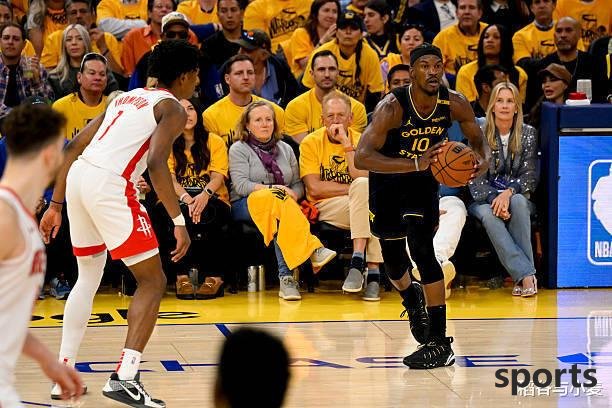
In this game, the Warriors' starting power forward Jimmy Butler's performance was actually very bad. Butler played 42 minutes and 08 seconds in the whole game, made 7 of 17 shots, 1 of 6 shots from outside the three-point line, and 12 of 14 free throws, scoring 27 points, 9 rebounds, 8 assists and 1 block, and had 1 turnover and 2 fouls, with a plus-negative value of -12. It seems that Butler got a lot of points, but his offensive efficiency is actually not ideal, and his three-point shooting percentage is even more terrible. If he hadn't received a lot of free throw opportunities, his statistics would have never been so good. Butler's performance on the defensive end is actually not satisfactory. He did not have some shortcomings in terms of concentration and investment on the defensive end, and he did not undertake more tasks in this regard. Butler's bad plus or negative values can also show that his situation on the team is also very bad. Even though the data looks pretty good, Butler's actual effect on the field is obviously much worse than the data.
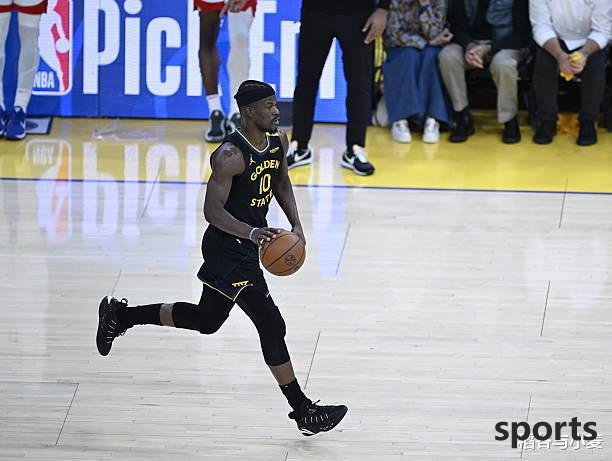
Since joining the Warriors, Butler has played 30 games for the team in the regular season, averaging 32.7 minutes per game, averaging 17.9 points, 5.5 rebounds, 5.9 assists, 0.3 blocks, and 1.5 turnovers and 1 foul. His shooting percentage is 47.6%, three-point shooting percentage is 27.9%, and free throw shooting percentage is 87%. In the playoffs, Butler played 5 games in the first 6 games, averaging 31.6 minutes per game, with an average of 18 points, 5.6 rebounds, 4.4 assists, 1.4 steals, 0.4 blocks, and 0.4 turnovers and 1.6 fouls. He shot 45% from the field, 23.1% from three-point shooting percentage and 84.6% from free throws.
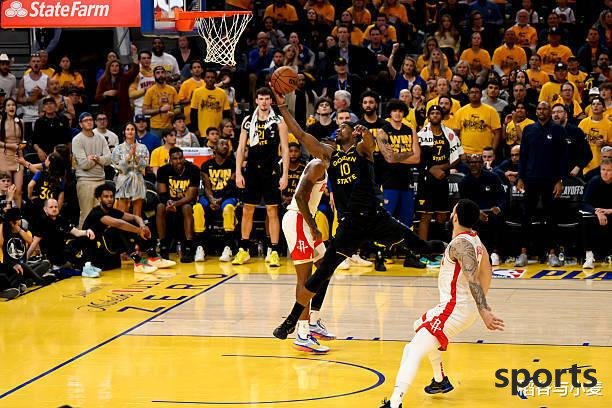
In fact, Butler's performance in the regular season and during the playoffs was very similar. His scoring ability was actually not that excellent. His offensive efficiency was relatively average, and his three-point shooting percentage was even worse. Butler averaged 7.7 free throws in the regular season, and even reached 7.8 in the playoffs. You should know that Butler averaged less than 20 points per game, and about 37% of his scores came from free throws, even more than one-third of the total score. You should know that Shai Gilgeous-Alexander, the recognized number one foul guru, averaged 27.8 points per game in the playoffs, and averaged 8.5 free throws per game with 23 shots per game. Butler, who averaged only 12 shots per game and scored only 18 points per game, can get 7.8 free throws per game. If he was given Alexander's shots, Butler would have to get 15 free throws per game.
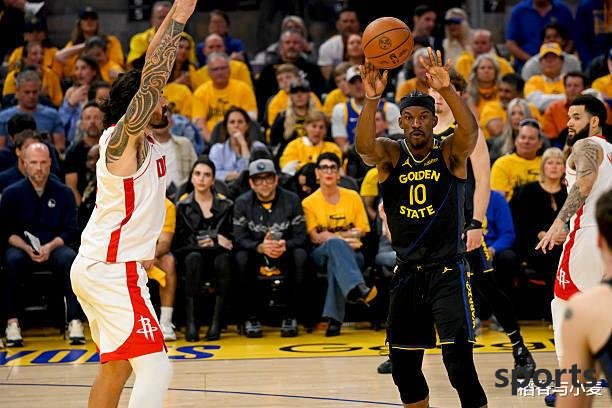
Butler often thinks too simple. Scoring is not easy anyway, so it is better to cheat fouls. This idea has instead led to a decline in his offensive efficiency, which has led to a too simple thought on the offensive end, and directly led to the team's passive situation on the offensive end. Sometimes it may not be a good thing to fall from the sky, after all, the pie only falls on Butler's head, not everyone's head. Being confused by the pie leads to an imbalance in mentality, which may lead to a greater crisis in the team. In the G7 of the series, can Butler be more down-to-earth? How can he show enough dominance without passing free throws?
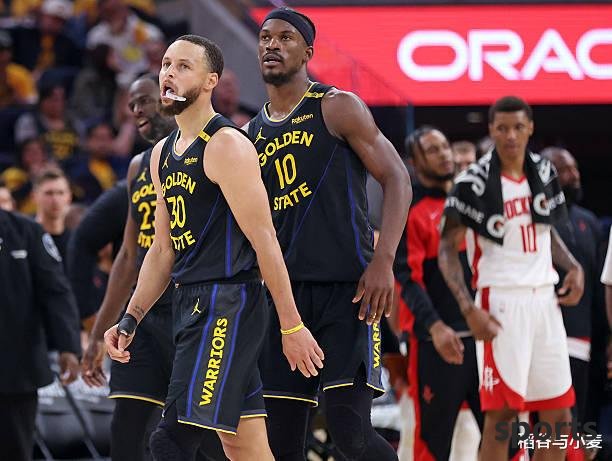
Related Posts
TA selected the top ten wonderful moments of the 21st century: James ranked first in the tiebreaker with 81%; Kobe ranked second with 81
BasketballNovember 22nd, the American media TheAthletic selected the top ten NBA moments since the 21st century. Among them, James ranked first with his biggest shot in G7 of the 2016 Finals, Kobe's 81 points ranked second, and Ray Allen's corner thre...
moreThe Mavericks are preparing for a major overhaul. The player supermarket has opened, and many main players have been put on the shelves. They will rebuild around the No. 1 pick.
BasketballThe Dallas Mavericks have had a devastating start to the season. In fact, at the beginning of the season, the outside world was relatively optimistic about the Mavericks. With the addition of the No. 1 pick, and no injuries to the team, they were al...
moreCollins started 6 games, averaging 9.3 points, 4.5 rebounds and 0 assists, shooting 40.7%% from the field and 13.3% from three-point range.
BasketballHupu News November 21st NBA regular season, the Clippers lost to the Magic 101-129 and suffered a three-game losing streak. In this game, Clippers player John Collins made 4 of 8 shots, 0 of 1 three-pointers, scored 9 points, 4 rebounds, 1 steal, 1...
more
Hot Posts
- Best Rookie? No. 4 overall pick Knipur, how amazing is he?
- Carter Jr.: We know what Blake is capable of and the team is stronger when he stays aggressive
- Seth Curry - Brothers on the same stage, Seth fights for the championship
- Anthony is officially inducted into the Hall of Fame! Maybe he only retired from the Knicks No. 7, but the Nuggets No. 15 cannot retire?
- NBA offseason turmoil: The giant chess game behind a billion-dollar contract
- Scott: Tatum seems to die when his Achilles tendon breaks, but Kobe will never do this
- American News: The Cavaliers don t need to trade core players such as Garland. They still have great potential if they are not the Lakers.
- Successfully played the role of the surprise! The Pacers forward performs amazingly in overtime?
- Questioning the Mavericks to Becoming the Mavericks! Famous reporter: Antetokounmpo is on his way to the Lakers
- Homegren burst! Thunder 149-106 Nuggets, Alexander watches 34+4+7, Harten 14+8+5
Recent Posts
-
Wizards officially announced the buyout of Smart! The Lakers cut Milton and still need to operate: The next step may be traded for Kneckett
-
Participate in the 2025 NBA Draft! Lin Wei posted a photo: There is no fear of chasing dreams and no end to love
-
Signing with Adu! The Lakers won four players in the second round of the draft, and Mr. Pei revealed that he would strengthen his ambitions
-
Going away? Reeves rejected the Lakers for 4 years and 89.2 million? Want to try the free market
-
Many teams are paying attention to the situation of the Rockets forward star, but the Rockets choose to remain silent?
-
Give up 314 million in 5 years! Re-sign 119 million in 3 years! Irving has cut his salary sharply, and the Mavericks are really about to take off
-
239 million in 5 years! Maximum salary renewal? The first 200 million-dollar gentleman is about to be born in the 22nd class
-
Ranking of the shortest active players in the NBA: Yuki Kawamura leads the list at 173. Paul Van Jordan and 16 others are tied for third place.
-
25 million! Doncic bought a luxury house without any bargaining at all. Sharapova spent only 4.1 million to buy a house in the past.
-
G1 Thunder 119-121 Nuggets Player rating: Caruso full score, 4 people passed, 4 people collapsed